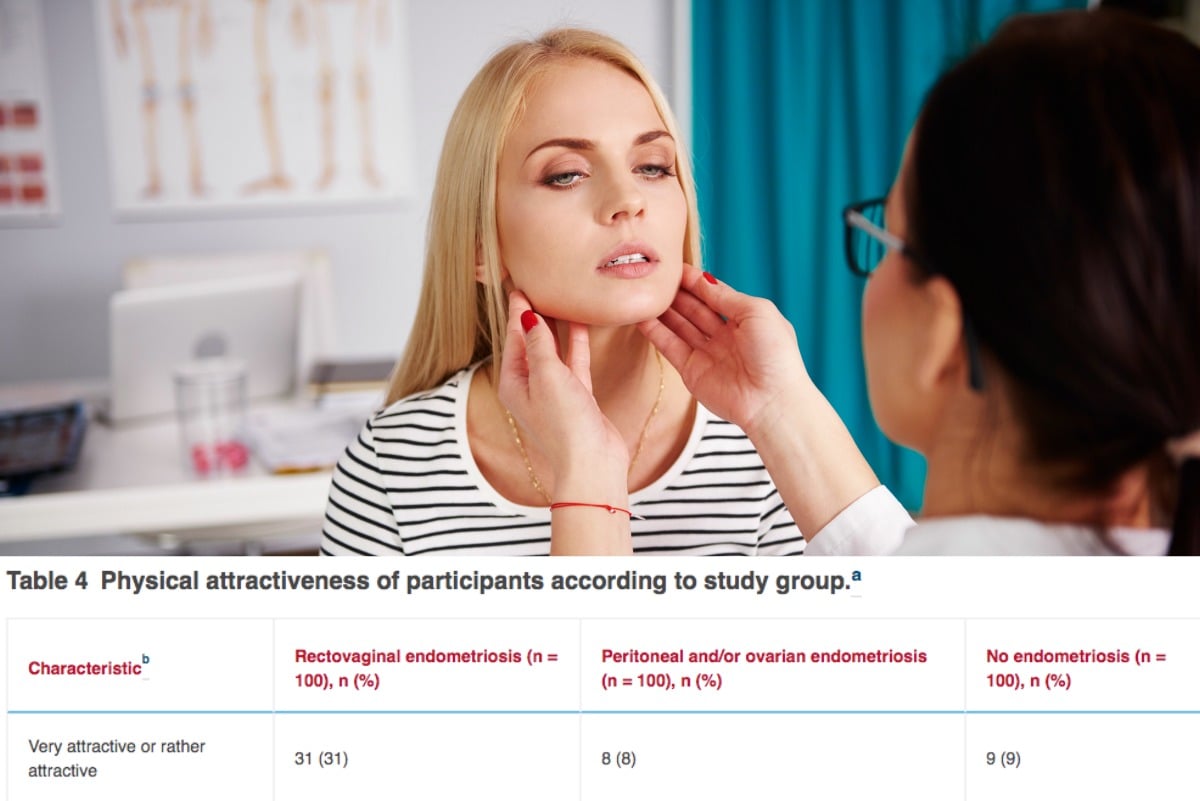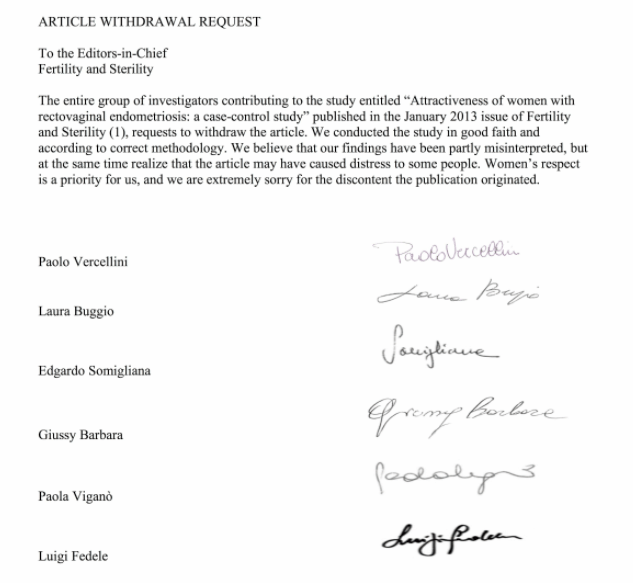
One in nine Australian women are diagnosed with endometriosis by the age of 44.
In very simple terms, it's a disorder that means the tissue that would normally line the inside of your uterus, grows outside. It might be in your ovaries, bowel, or fallopian tubes instead.
It can be excruciatingly painful and despite being one of the most prevalent women's health issues, the disorder is underdiagnosed and understudied. Far more work needs to be done in the space of endometriosis when it comes to diagnosis and treatment.
But - for reasons no one can quite understand - a medical journal decided to invest resources into determining whether endometriosis makes you more physically attractive.
Yes, you read that right.
Let us explain. In 2013 (yep, that recently), an obstetrician, gynecologist and the former president of the World Endometriosis Society, led a study that's sole purpose was to "evaluate physical attractiveness in women with and without endometriosis."
WATCH: What is endo? Post continues after video.


Top Comments
And, "attractiveness" is pretty much always subjective.
Hi there, thank you for alerting us. We have changed this in the article.
Thanks,
Mamamia Team